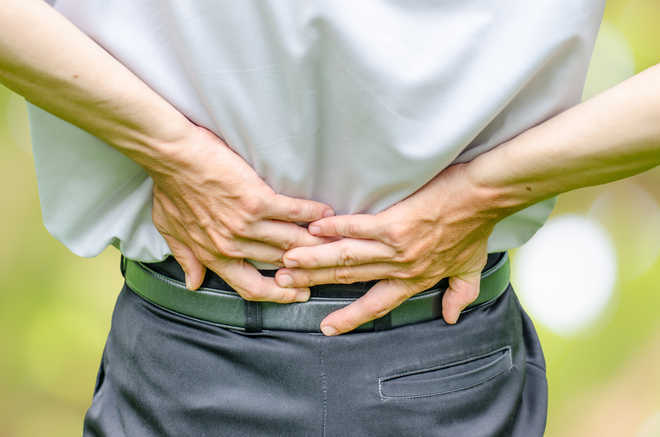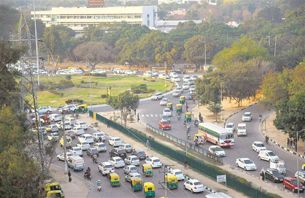
Photo: Thinkstock
Melbourne
Commonly used pain killers, such as ibuprofen, provide little benefits against back ache and cause side effects such as stomach ulcers and bleeding, a new study has warned.
Researchers at The George Institute for Global Health in Australia found only one in six patients treated with the pills, also known as non-steroidal anti-inflammatory drugs (NSAID), achieve any significant reduction in pain.
(Follow The Tribune on Facebook; and Twitter @thetribunechd)
Earlier research has already demonstrated paracetamol is ineffective and opioids provide minimal benefit over placebo.
The study highlights an urgent need to develop new therapies to treat back pain which affects 80 per cent of Australians during their lifetime, said Manuela Ferreira, associate professor at The George Institute for Global Health.
"Back pain is the leading cause of disability worldwide and is commonly managed by prescribing medicines such as anti-inflammatories," said Ferreira.
"However, our results show anti-inflammatory drugs actually only provide very limited short term pain relief. They do reduce the level of pain, but only very slightly, and arguably not of any clinical significance," said Ferreira.
"When you factor in the side effects which are very common, it becomes clear that these drugs are not the answer to providing pain relief to the many millions of Australians who suffer from this debilitating condition every year," Ferreira added.
Researchers, who examined 35 trials involving more than 6,000 people, also found patients taking anti-inflammatories were 2.5 times more likely to suffer from gastro-intestinal problems such as stomach ulcers and bleeding.
"Millions of Australians are taking drugs that not only do not work very well, they are causing harm. We need treatments that will actually provide substantial relief of these people's symptoms," said Gustavo Machado from The George Institute.
"Better still we need a stronger focus on preventing back pain in the first place. We know that education and exercise programs can substantially reduce the risk of developing low back pain," he said.
Most clinical guidelines currently recommend NSAIDs as the second line analgesics after paracetamol, with opioids coming at third choice.
The study was published in the journal Annals of the Rheumatic Diseases. —PTI



























